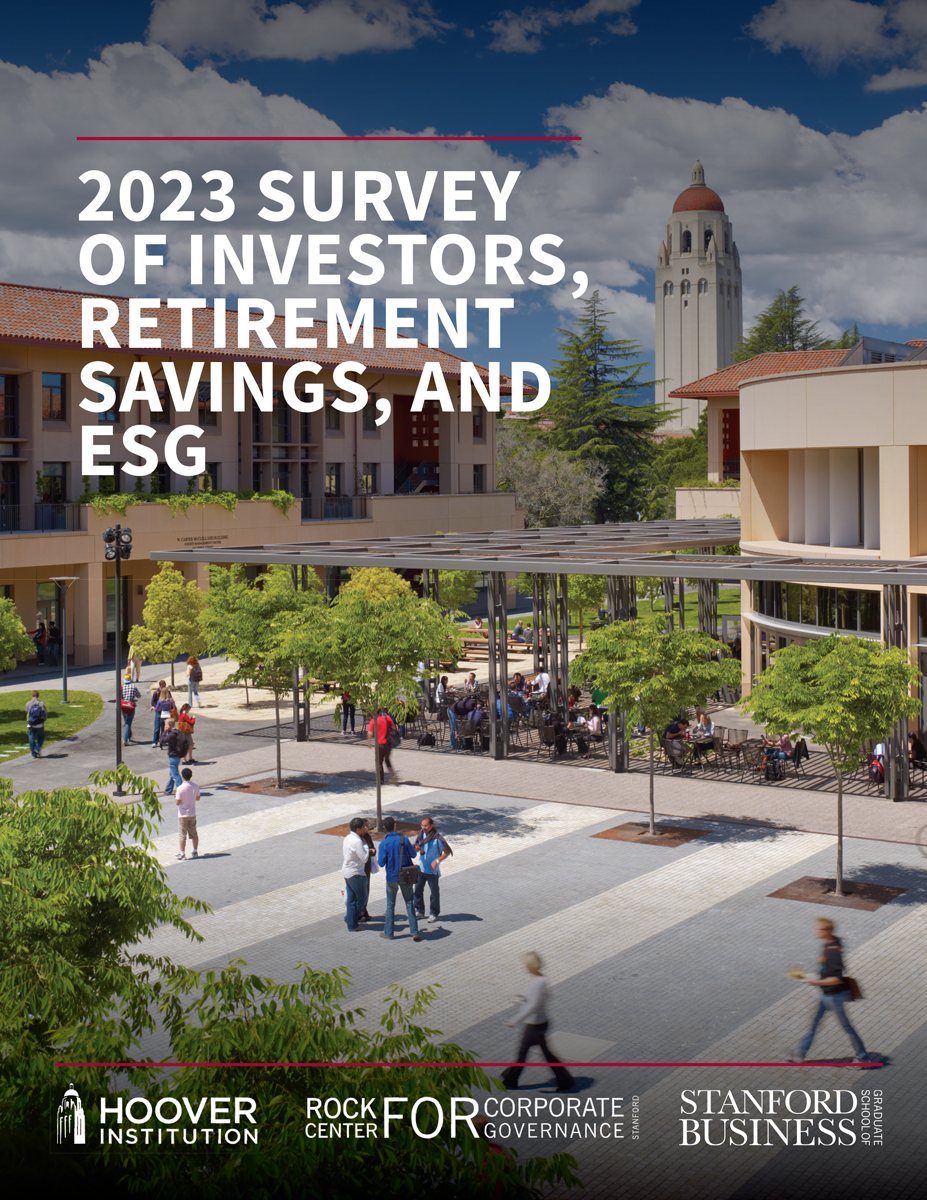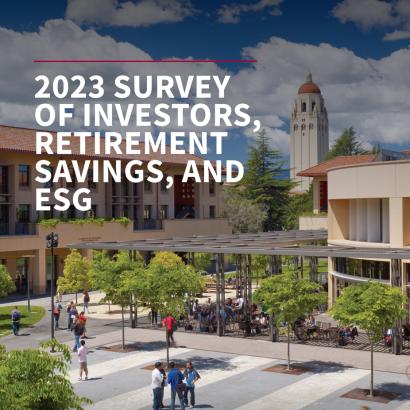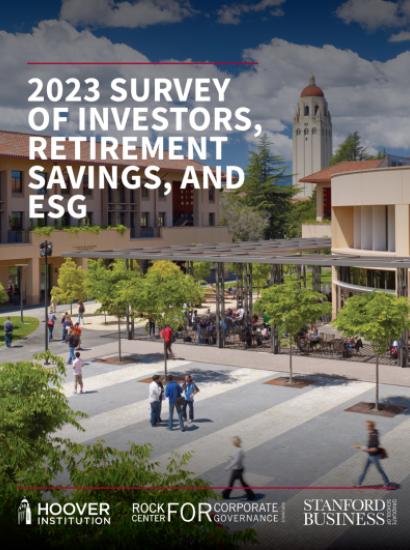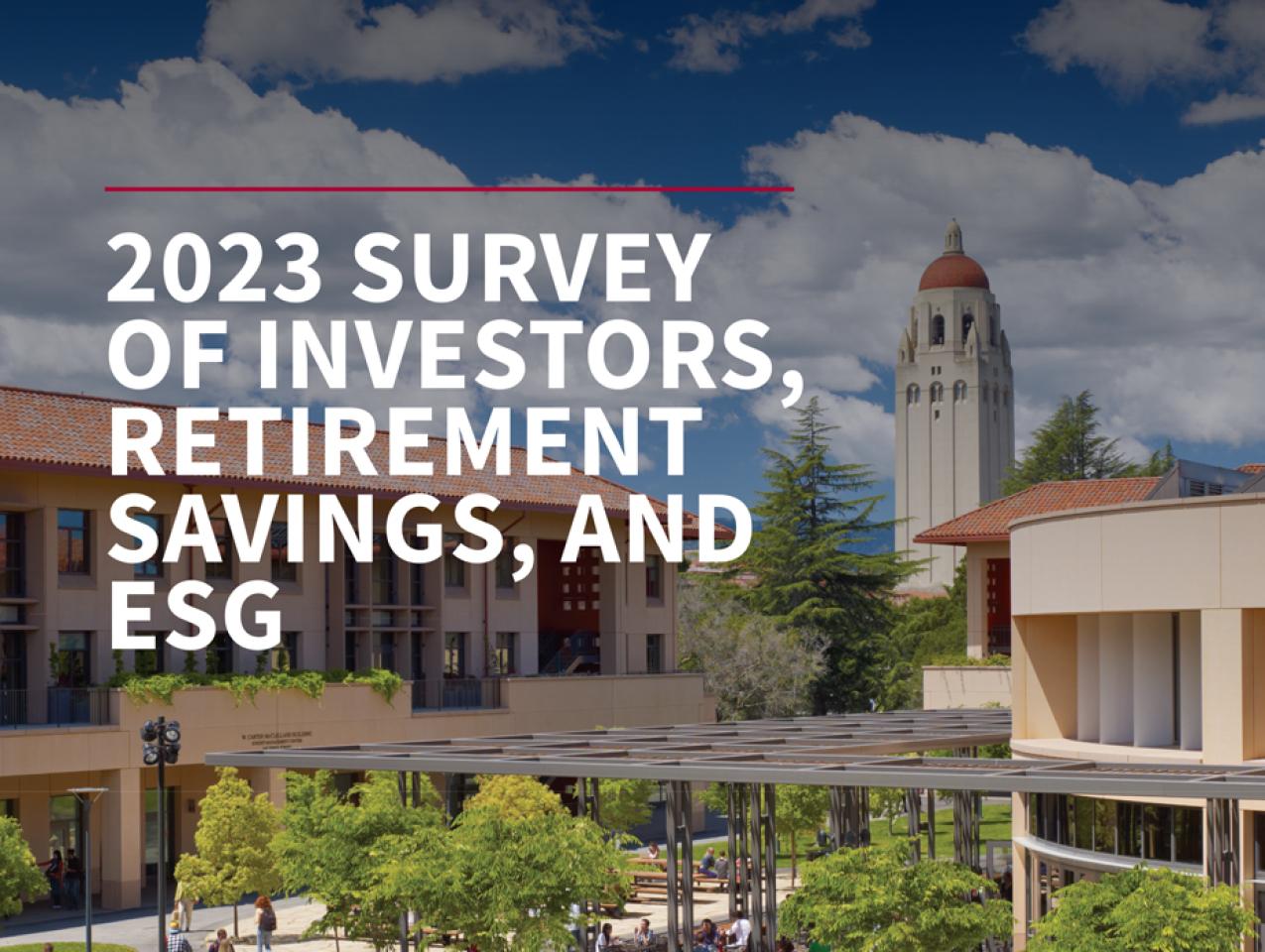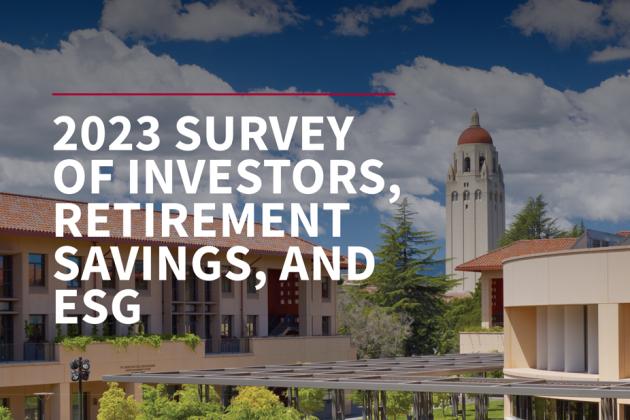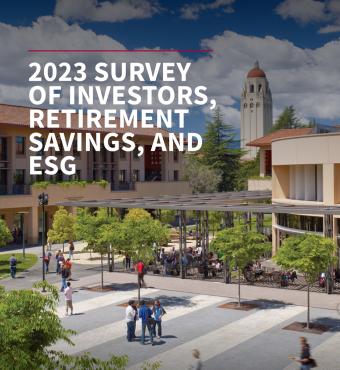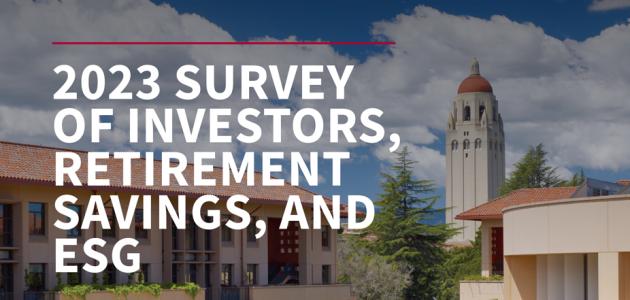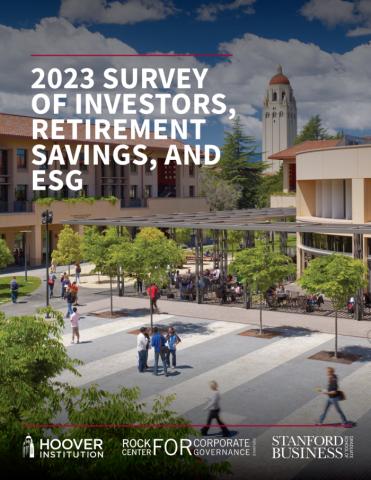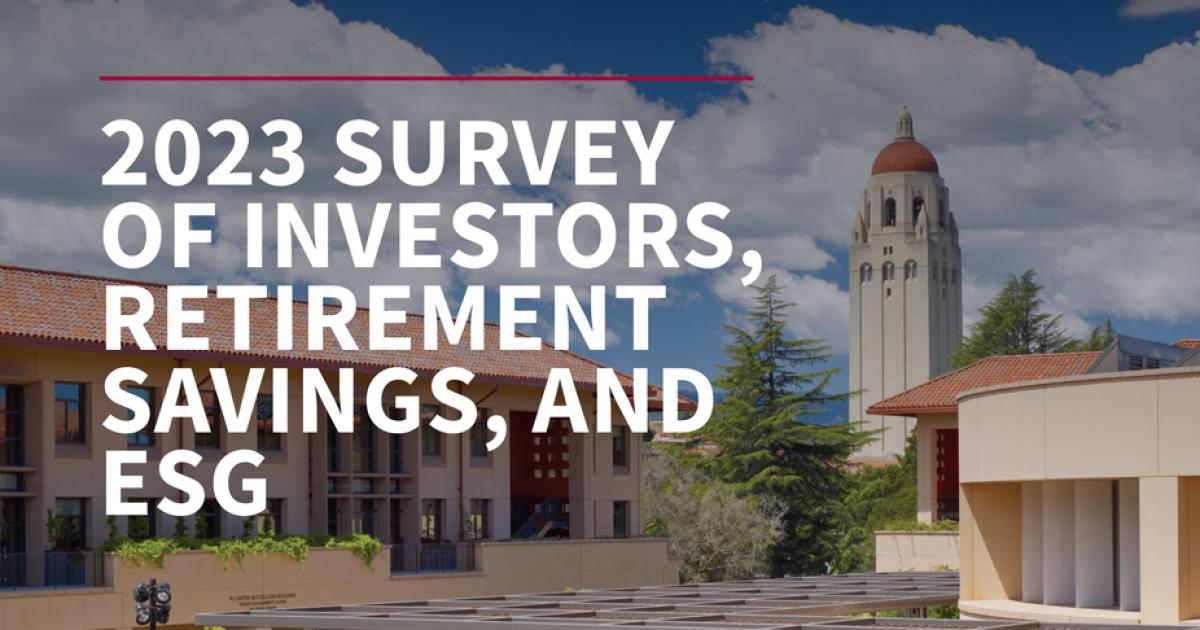Support for ESG falls precipitously year-over-year, particularly among young and middle-aged investors.
Older investors continue to overwhelmingly oppose the idea of fund managers using their size and voting power to advocate for environmental or social change.
Young investors are much less willing to accept a decline in the value of their investments to advance a range of issues, such as climate change, renewable energy, workplace diversity, and gender pay inequity.
“The decline in support for ESG over the past year, particularly among young investors, is striking,” observes Professor David F. Larcker of Stanford Graduate School of Business and the Hoover Institution Working Group on Corporate Governance. “Just one year ago, young investors told us overwhelmingly that they were very concerned about environmental and social issues, and they wanted the fund managers that invest their savings to use their size and voting power to advocate for change, even if it meant a loss of personal wealth. This year, sentiment has changed dramatically, with young and middle-aged investors expressing lower support for ESG issues by doubledigit percentages across the board.”
“We find a significant drop in enthusiasm for ESG among Millennial and Gen Z investors, who used to be bedrock advocates for environmental and social causes,” adds Professor Amit Seru of Stanford Graduate School of Business and the Hoover Institution Working Group on Corporate Governance. “Their fervor is much more tempered right now. Young investors tell us that they are much less willing to lose personal money to see progress made against issues such as climate change, sustainability, labor conditions, and diversity in the workplace. With their confidence down, investors are more cautious about risking their personal wealth to support stakeholder issues.”
In fall 2023, Stanford Graduate School of Business, the Hoover Institution Working Group on Corporate Governance at Stanford University, and the Rock Center for Corporate Governance at Stanford University jointly conducted a nationwide survey of 993 investors—distributed by gender, race, age, household income, and state residence— to understand how American investors view environmental, social, and governance (ESG) priorities among the companies in their investment portfolio. This survey is a follow-up to the same survey conducted in 2022.
Respondents run the spectrum of personal investment assets from less than $10,000 to more than $500,000 (average $150,000) in retirement and personal savings accounts. Their investments are held through a variety of major institutional investors, including Fidelity (39 percent), Vanguard (25 percent), American Funds (19 percent), BlackRock (9 percent), Invesco (6 percent), and State Street (5 percent), among others.
Read the Study: 2023 Survey Of Investors, Retirement Savings, And ESG






